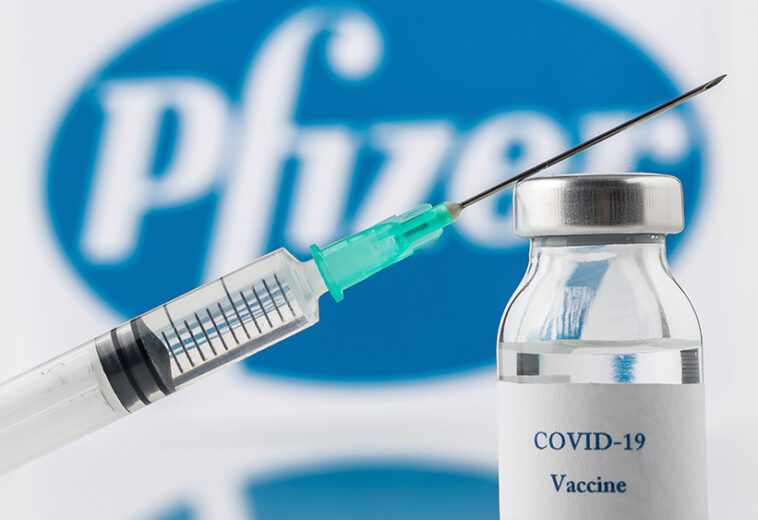The modern agricultural industry has made significant advances in productivity and efficiency, but at what cost to our health and the environment? While these innovations have enabled us to feed a growing global population, they have also introduced a myriad of harmful agricultural toxins into our lives.
This article will shed light on the top five agricultural toxins that have a significant impact on American health outcomes, delve into the corrupt history of their manufacturers, and uncover the inappropriate relationships between these companies and regulatory bodies. Furthermore, we will discuss three ways to combat the toxicity of each environmental contaminant. Let’s dive into the dark side of modern agriculture and learn how we can protect ourselves and our environment.
1 | Glyphosate
Glyphosate, the active ingredient in the widely used herbicide Roundup, has become a prevalent agricultural toxin in recent years. It has been linked to numerous health issues, including cancer, reproductive problems, and neurological disorders.
Corrupt History and Inappropriate Relationships
The manufacturer of Roundup, Monsanto (now owned by Bayer), has a long history of deceptive practices, manipulation of scientific research, and strong-arming regulators to maintain the approval of glyphosate. Monsanto has been accused of ghostwriting scientific studies, intimidating researchers, and suppressing unfavorable findings. The company has also been involved in a revolving door of employment with regulatory bodies, leading to potential conflicts of interest and undermining the regulatory process.
Ways to Combat Glyphosate Toxicity
- Buy organic produce: Organic farming prohibits the use of glyphosate. By choosing organic produce, you can reduce your exposure to this harmful toxin.
- Filter your water: Glyphosate residues can end up in drinking water. Invest in a high-quality water filter that removes glyphosate and other contaminants.
- Support glyphosate-free farming practices: Advocate for glyphosate-free farming methods and support local farmers who employ sustainable practices.
2 | Atrazine
Atrazine, a widely used herbicide, is notorious for its impact on the endocrine system, leading to reproductive issues, birth defects, and hormonal imbalances.
Corrupt History and Inappropriate Relationships
Syngenta, the manufacturer of atrazine, has been accused of manipulating research, suppressing unfavorable findings, and engaging in a campaign of intimidation against scientists who question the safety of atrazine. The company has also been known to use its financial and political influence to sway regulatory decisions in its favor.
Ways to Combat Atrazine Toxicity
- Choose organic produce: Organic farming does not permit the use of atrazine, so consuming organic produce can help minimize exposure to this toxin.
- Use a water filter: Atrazine can contaminate drinking water supplies. Invest in a water filter that is certified to remove atrazine.
- Educate yourself and others: Stay informed about the dangers of atrazine and advocate for stricter regulations on its use.
3 | Neonicotinoids
Neonicotinoids are a class of insecticides that have gained notoriety for their devastating impact on pollinators, such as bees and butterflies. They have also been linked to various human health problems, including developmental disorders and neurological issues.
Corrupt History and Inappropriate Relationships
Manufacturers of neonicotinoids, including Bayer and Syngenta, have been accused of manipulating research, downplaying the risks of their products, and exerting undue influence on regulatory bodies. These companies have been known to fund their research and employ scientists who work for regulatory agencies, leading to potential conflicts of interest.
Ways to Combat Neonicotinoid Toxicity
- Choose organic produce: Organic farming practices do not allow the use of neonicotinoids. By opting for organic produce, you can reduce your exposure to these harmful chemicals.
- Plant a pollinator-friendly garden: Support pollinators by planting a garden with native, pesticide-free plants that provide food and habitat for bees, butterflies, and other beneficial insects.
- Advocate for stricter regulations: Raise awareness about the dangers of neonicotinoids and push for stronger regulations and bans on their use.
4 | Organophosphate Pesticides
Organophosphate pesticides, a class of chemicals used to control insects on crops, have been linked to a range of health issues, including neurological disorders, developmental delays in children, and respiratory problems.
Corrupt History and Inappropriate Relationships
Companies that manufacture organophosphate pesticides, such as Dow Chemical and Bayer, have been accused of downplaying the risks associated with their products, manipulating research, and using their influence to sway regulatory decisions. There have been instances where company executives have held positions within regulatory agencies, leading to potential conflicts of interest and a compromised regulatory process.
Ways to Combat Organophosphate Toxicity
- Opt for organic produce: Organic farming prohibits the use of organophosphate pesticides. By choosing organic produce, you can minimize your exposure to these dangerous chemicals.
- Practice Integrated Pest Management (IPM): Encourage farmers and gardeners to adopt IPM, a sustainable approach to pest control that emphasizes natural methods and minimizes the use of toxic chemicals.
- Support policy change: Advocate for stricter regulations on organophosphate pesticides and push for the development and adoption of safer alternatives.
5 | Chlorpyrifos
Chlorpyrifos, an organophosphate pesticide, has been widely used in agriculture since the 1960s. It has been associated with numerous health issues, including neurological damage, developmental disorders, and respiratory problems.
Corrupt History and Inappropriate Relationships
Dow Chemical, the primary manufacturer of chlorpyrifos, has been accused of suppressing unfavorable research, influencing regulatory decisions, and engaging in a revolving door of employment with regulatory bodies. The company has lobbied aggressively to maintain the approval of chlorpyrifos, despite mounting evidence of its harmful effects on human health and the environment.
Ways to Combat Chlorpyrifos Toxicity
- Choose organic produce: Organic farming does not permit the use of chlorpyrifos. By opting for organic produce, you can reduce your exposure to this harmful pesticide.
- Support bans on chlorpyrifos: Advocate for a complete ban on chlorpyrifos and support efforts to phase out its use in agriculture.
- Educate yourself and others: Stay informed about the dangers of chlorpyrifos and share this information with friends, family, and policymakers.
Conclusion
The corrupt history of manufacturers and their inappropriate relationships with regulatory bodies have allowed these harmful agricultural toxins to pervade our environment and impact our health. By understanding the risks associated with these contaminants and taking steps to combat their toxicity, we can protect ourselves, our families, and our environment from the devastating effects of these chemicals.
It is crucial to support organic farming practices, invest in water filtration systems, and advocate for policy changes that enforce stricter regulations on these harmful toxins. A collective effort to raise awareness, demand transparency, and promote safer alternatives can help create a healthier and more sustainable future for all.
Originally published at The Truth About Cancer and reproduced here with permission.
About the author:
Ty Bollinger is a health freedom advocate, cancer researcher, former competitive bodybuilder and author. After losing several family members to cancer, he refused to accept the notion that chemotherapy, radiation, and surgery were the most effective treatments available for cancer patients. He began a quest to learn all he possibly could about alternative cancer treatments and the medical industry. What he uncovered was shocking. There is ample evidence to support the allegation that the “war on cancer” is largely a fraud and that multinational pharmaceutical companies are “running the show.” Ty has now made it his life mission to share the most remarkable discovery he made on his quest: the vast majority of all diseases, including cancer, can be easily prevented and even cured without drugs or surgery.
For more information, visit:



